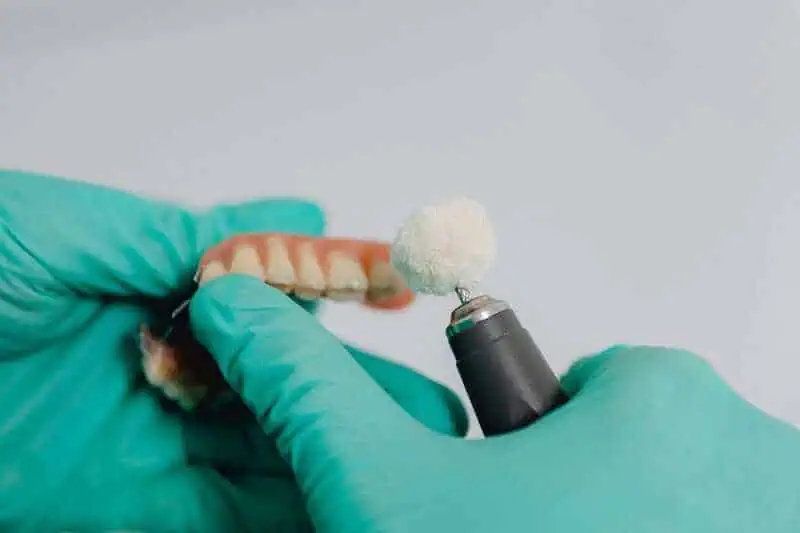Getting dentures for the first time? Expect some challenges, but also life-changing improvements. As a dentist in Woodinville with over 10 years of experience, I’ve helped hundreds of patients navigate the early days of life with dentures. While the first few weeks may bring discomfort or frustration, most patients adjust beautifully with a little time and support.
In this guide, I’ll walk you through what to expect with dentures the first time, from physical sensations and speaking tips to eating, socializing, and long-term care.
The First Few Weeks: Physical Adjustment
Yes, it’s normal for dentures to feel awkward at first.
Most patients experience mild soreness, extra saliva, and a sense of bulkiness during the first 2–3 weeks.
Common early experiences:
- Sore or tender gums
- Slight looseness or movement
- Increased saliva production
- Feeling like your dentures are “too big”
What helps:
- Use denture adhesive for extra stability (ask your dentist for recommendations)
- Rinse with warm salt water to soothe sore spots
- Remove dentures at night to let your gums rest
- Follow up with your dentist for minor adjustments
Tip: Your facial muscles will adapt with time. Be patient, and don’t hesitate to reach out if something feels off.
Speaking With Dentures: Regain Clarity and Confidence
Yes, speaking with new dentures takes practice, but it gets better fast. Many first-time wearers notice a slight lisp or trouble with certain sounds. This happens because your tongue and lips are adapting to a new shape in your mouth.
How to improve speech:
- Read aloud daily in front of a mirror
- Practice difficult words repeatedly
- Speak slowly and clearly at first
- Bite down and swallow before speaking to set your dentures
Most patients regain clear speech within 2–4 weeks. If issues continue, ask your dentist about possible adjustments.
Eating With Dentures: Building New Habits
Eating with dentures is one of the biggest adjustments, but also the most rewarding.
In the beginning, even soft foods might feel strange. But with practice, you’ll rebuild confidence and muscle memory.
Tips for eating with dentures:
- Start with soft foods (mashed potatoes, yogurt, eggs)
- Cut food into small, manageable pieces
- Chew slowly and evenly on both sides
- Avoid sticky, crunchy, or hard foods at first
- Be cautious with hot foods, your temperature sensitivity may be reduced
By 4–6 weeks, most patients are eating confidently again. Take your time, and celebrate small victories with each meal.
Socializing With Dentures: Boosting Your Confidence
Yes, wearing dentures in public can feel intimidating at first, but confidence builds quickly. It’s common to feel self-conscious in social settings during your adjustment period, but the truth is: most people won’t notice you’re wearing dentures.
Tips for social situations:
- Use a quality adhesive to prevent slipping
- Practice eating at home before dining out
- Start with small, familiar gatherings
- Remind yourself: your smile looks great!
- Keep your sense of humor, everyone has an adjustment period
Bonus mindset tip: Focus on connection, not perfection. People notice your warmth and confidence far more than your dentures.
Long-Term Success With Dentures: Maintenance Is Key
Long-lasting dentures depend on good habits and regular dental care. Even if you no longer have natural teeth, your gums and oral tissues still need attention.
Daily denture care checklist:
- Remove and rinse dentures after every meal
- Clean with a soft brush and denture cleanser (not regular toothpaste)
- Soak overnight in a denture solution or plain water
- Avoid hot water or bleach, which can warp or damage dentures
Professional care:
At Wagner Family Dentistry, we recommend check-ups at least twice a year for denture wearers. We’ll ensure your dentures fit properly, check for irritation or infection, and reline them as needed over time.
Mental Adjustment: What No One Tells You
Yes, there’s an emotional side to getting dentures. For many patients, adjusting to dentures brings up unexpected emotions, from anxiety to frustration to self-consciousness. That’s completely normal.
You are not alone.
- Talk to your dentist about your concerns
- Set realistic expectations (adjustment takes weeks, not days)
- Surround yourself with supportive people
- Celebrate your progress, every small win counts
Most patients report feeling comfortable and confident within 6–12 weeks.
Recap: What to Expect With Dentures the First Time
- Mild soreness, extra saliva, and speaking challenges are normal
- Eating gets easier with practice, start soft and slow
- Social confidence takes time but builds quickly
- Proper cleaning and regular check-ups ensure long-term success
- You’re not alone, thousands adjust to dentures every day!
Frequently Asked Questions (FAQs)
How long does it take to adjust to new dentures?
Most people adjust within 3 to 6 weeks, though full comfort can take up to 3 months.
Do dentures always feel loose at first?
Yes, they can feel slightly loose until your muscles learn to hold them in place. Adhesives and adjustments help.
Do dentures affect your sense of taste?
Yes, dentures can slightly affect your sense of taste, especially in the beginning. This is often due to the upper denture covering the palate, which can dull taste perception.
Ready to Feel Confident With Your Dentures?
The first-time denture experience is a journey, but you’re not alone. At Wagner Family Dentistry, we support patients in Woodinville through every step, from the initial fitting to long-term adjustments.
Call today to schedule your denture check-up or fitting. Let’s make sure your new smile feels just as good as it looks.

